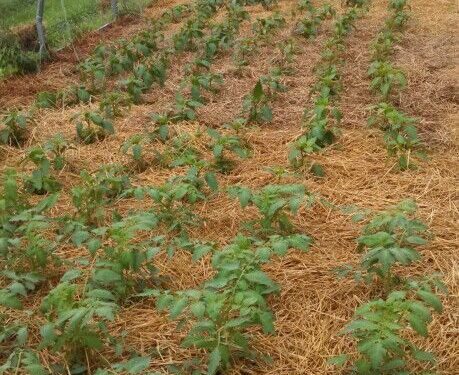Bayelsa State, nestled within the heart of Nigeria’s Niger Delta, is often characterized by its vast network of waterways and oil wealth. However, beneath the surface of these dominant features lies a wealth of untapped agricultural potential, a “green gold” waiting to be fully realized. Despite the challenges posed by its unique terrain, Bayelsa possesses fertile land and abundant water resources, making it a promising hub for diverse agricultural activities.
A Land of Abundant Resources:
Bayelsa’s agricultural landscape is defined by its rich alluvial soils, ideal for cultivating a variety of crops. The state’s tropical climate, characterized by high rainfall and humidity, further supports agricultural growth. The abundant water resources, including rivers, creeks, and swamps, not only facilitate irrigation but also create a conducive environment for aquaculture.
Key Agricultural Strengths:
- Rice Cultivation: Rice is a staple crop in Bayelsa, and the state has significant potential for large-scale rice production. The floodplains and swampy areas are particularly suitable for rice cultivation, and with improved irrigation and modern farming techniques, Bayelsa can become a major rice producer in Nigeria.
- Fisheries and Aquaculture: Bayelsa’s extensive network of waterways makes it a natural hub for fisheries and aquaculture. The state boasts abundant fish species, and with proper management and investment in aquaculture, it can significantly boost its fish production and contribute to food security.
- Cassava and Root Crops: Cassava, yam, and other root crops thrive in Bayelsa’s soil. These crops are crucial for food security and can be processed into various products, creating opportunities for value addition and agro-processing industries.
- Plantain and Banana Production: The state’s climate is ideal for plantain and banana cultivation. These crops are widely consumed in Nigeria and offer significant economic potential for Bayelsa farmers.
- Oil Palm Cultivation: The state has the potential to develop large scale oil palm plantations. With the increase in demand for palm oil, investment in this sector can boost the state’s economy.
- Forestry and Non-Timber Forest Products: Bayelsa’s forests are rich in timber and non-timber forest products, including medicinal herbs, spices, and fruits. Sustainable forest management can provide economic opportunities while preserving the state’s natural resources.
Challenges and Opportunities:
Despite its potential, Bayelsa’s agricultural sector faces several challenges:
- Flooding and Water Management: The state’s low-lying terrain makes it vulnerable to flooding, which can damage crops and infrastructure. Effective water management systems are crucial for mitigating this challenge.
- Inadequate Infrastructure: Poor road networks and limited access to markets hinder the transportation of agricultural produce. Investing in infrastructure development is essential for connecting farmers to markets and improving the efficiency of the supply chain.
- Lack of Access to Finance and Technology: Many farmers in Bayelsa lack access to finance and modern farming technologies. Providing access to credit, training, and improved farming techniques can significantly boost agricultural productivity.
- Environmental Degradation: Oil exploration and exploitation have led to environmental degradation, impacting agricultural land and water resources. Sustainable agricultural practices and environmental remediation are crucial for protecting the state’s natural resources.
However, these challenges also present opportunities:
- Investment in Irrigation and Drainage Systems: Developing efficient irrigation and drainage systems can mitigate the impact of flooding and improve water management.
- Development of Agro-Processing Industries: Establishing agro-processing industries can add value to agricultural produce, create jobs, and boost the state’s economy.
- Promotion of Sustainable Aquaculture: Investing in sustainable aquaculture practices can increase fish production while minimizing environmental impact.
- Empowering Farmers through Training and Access to Finance: Providing farmers with training on modern farming techniques and access to finance can improve their productivity and income.
- Promoting Public Private Partnerships: Encouraging public private partnerships to invest in agricultural infrastructure, and development.
The Path Forward:
Bayelsa’s agricultural potential is undeniable. By addressing the challenges and capitalizing on the opportunities, the state can transform its agricultural sector into a major driver of economic growth and food security. Investment in infrastructure, technology, and sustainable farming practices is crucial for unlocking the “green gold” of Bayelsa. By harnessing its abundant resources and empowering its farmers, Bayelsa can truly live up to its name as the “Glory of All Lands.















